It turns out that many people are filling in the gaps with their own assumptions. Some believe that Tushan Jing is completely unharmed, while others believe he has been castrated. Both interpretations are incorrect.
If Tushan Jing were truly a eunuch, then there would be no reason to question the origins of Tushan Zhen.
If Tushan Jing were completely unharmed, then Tushan Hou would seem overly kind—torturing him all over, leaving scars, applying spiritual medicine, and still protecting his second brother.
With so much controversy, it's best to refer directly to the original novel. Tong Hua's logic is extremely rigorous and precise, with not a single word misplaced!
[The following dozen or so quotations are all from Tong Hua's original work—there is not a single word of fabrication, malicious interpretation, or fan fiction.]
I am a graduate of medical school, and the following analysis is purely from a medical and literary perspective, based on the descriptions in the original novel.
To be precise, it’s not that Tong Hua was unwilling to write a consummation scene for Xiao Yao and Tushan Jing — she deliberately emphasized that they did not consummate their marriage. Otherwise, she could have simply skipped the topic without mentioning it.
After all, from the very beginning of the novel, Tong Hua put great effort into describing the condition of Tushan Jing’s body — such as the skinned areas on his inner thighs, the base of his thighs, and the most painful part between his legs. She carefully laid the groundwork through many details.
The answer to why Xiao Yao and Tushan Jing never consummated their marriage is already embedded in the text.
Tong Hua’s novels often include consummation scenes for true couples — yet she specifically avoids writing one for Xiao Yao and Tushan Jing, a couple who went through a century of love, separation, and reunion. Not only does she avoid writing it, she deliberately and repeatedly emphasizes that it never happened.
The real answer lies in the very first chapter of the novel. I recommend everyone to read it again, word by word, line by line — otherwise, you’ll end up like the “worldly people” Tong Hua mocks and ridicules.
(The Xiao Yao–Jing pairing was accompanied from the start by mockery, missing pieces, and a waning moon.)

The brilliant and concise Peking University alumna Tong Hua used an entire 154-character paragraph to painstakingly describe the injuries on Tushan Jing’s inner thighs, the base of his thighs, and the area between his legs — multiple times his skin was flayed, causing damage to the corpus cavernosum.
Although the organ itself remained intact — still capable of reaction and desire — actually functioning may have been somewhat impaired!
In Chapter 1 of the original Lost You Forever novel (“Life Is But a Fleeting Guest”), the passage reads:
“From the outer thigh to the hips and waist were all kinds of scars, but compared to the torture inflicted on the inner thighs, those were not worth mentioning. The skin on the man’s inner thighs had been flayed in shreds. From the knee all the way up to the base of the thigh, the wounds — some new, some old — varied in color from deep to light, looking like a piece of ragged cloth full of mismatched patches. It was a painful sight. The person who carried out the torture clearly understood the human body's limits — they knew the area between a man's legs is the softest and most sensitive, so each time they sliced off a piece of skin, it would cause unbearable pain without killing him.”
From a medical perspective, this type of injury involves multiple areas of the corpus cavernosum and scrotum being flayed, causing severe damage and tissue loss. However, in order to keep him alive, the organ and urethra were intentionally preserved.
During the treatment, it was Xiao Yao herself who performed the full-body wound cleaning and surgical trimming.
Xiao Yao is the single person in the entire world who knows the extent of Tushan Jing’s private injuries most clearly.
From the very beginning, she knew — Tushan Jing was a broken body.
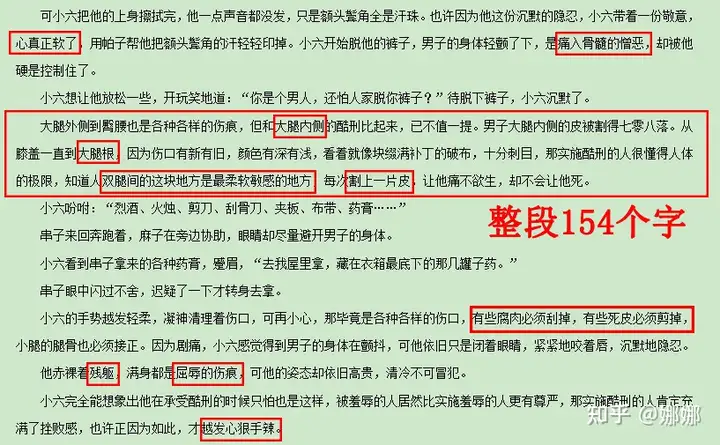
In direct correlation with this, the only soft part left on Tushan Jing’s body was the inside of his lips.
This implies that after three years of repeated injuries and being doused with spiritual medicine, his entire body had developed thick scabs and callus-like subcutaneous fibrous tissue — even the softest part of a man’s body, his genitals, had become scabbed over

What the drama adaptation couldn’t portray is that, for more than half a year, it was Xiao Yao who personally helped Tushan Jing with massages, changing his medicine, and washing his body.
From the start, she felt no shyness at all when it came to seeing or touching his naked body, including his private parts.
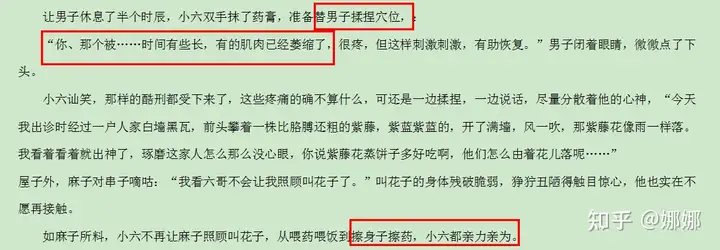
After more than half a year of Xiao Yao washing Tushan Jing’s body, why did she suddenly blush the first time he was finally able to bathe on his own?
(Let’s forgive the drama adaptation for being unable to depict this part.)
In fact, in the original novel, she saw him move his hands around and reach between his legs — this was now a man with mobility and agency, no longer a patient lying in bed, passively receiving medical treatment.
Although Xiao Yao had lived as a man for over a hundred years, her inner instincts were still those of a young woman.
Her blushing had nothing to do with love — it was purely a reaction of gender-based modesty and shame.
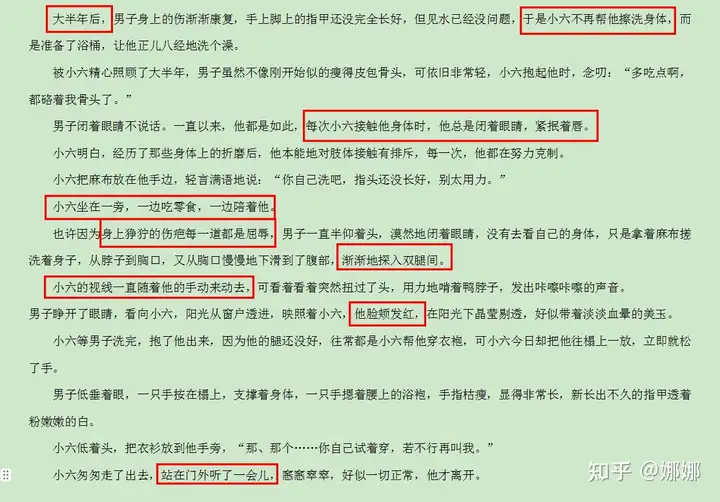
As for the specific recovery of Tushan Jing’s injuries, it should be understood as follows:
All open wounds had healed, but the scars remained and could not be removed. The extent of functional recovery is unknown.
Xiao Yao had no way of knowing the condition of the hidden internal injuries, nor did she concern herself with those uncertain "functions."

In Book 1, Chapter 8: “Fading Light, Why Not Return?”, while in the Dragonbone Prison, Tushan Jing also gave a clear and subtle hint:
His body was still intact — he was still a man.
(Though scarred and damaged, his testicles and base were still there.)

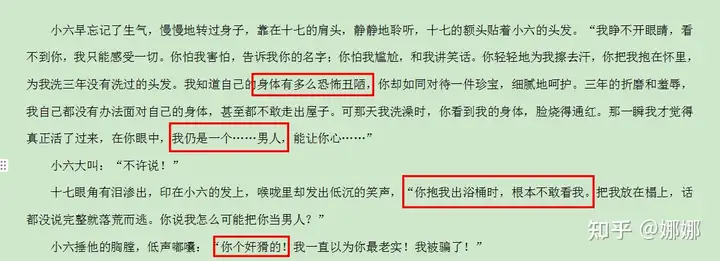 Immediately afterward, during the first visit to the Five Gods Mountain, author Tong Hua essentially gave a death sentence to all of Tushan Jing’s scars —
Immediately afterward, during the first visit to the Five Gods Mountain, author Tong Hua essentially gave a death sentence to all of Tushan Jing’s scars —
completely shutting down any possibility of recovery or removal.

In Book 1, Chapter 14: “This Feeling Cannot Be Willed Away”, during the seaside kiss scene outside the Dragonbone Prison,
author Tong Hua provided a detailed follow-up description regarding Tushan Jing’s injuries at the base of his thighs and his physiological reaction—
The phrase “burning and restless” (火烧火燎得不自在) indicates that there was a physical reaction,
but the sensation was likely a mix of heat, pain, and discomfort.

Later, in Book 2, Chapter 3: “Peaceful Years Shared With You”, during the scene in the Osmanthus Garden,
Tushan Jing clearly had a strong physical reaction and renewed confidence after feeling Xiao Yao’s affection as she kissed his leg, showing no disgust toward his scarred and damaged body.
Meanwhile, as Xiao Yao grew intimate with Tushan Jing, her inner emotions were filled with shyness, nervousness, panic, anticipation, and even an instinctive fear.
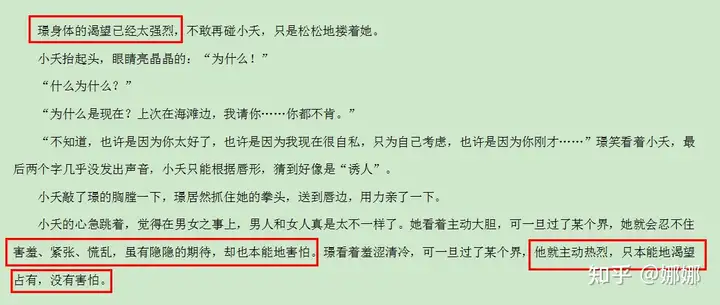
Although Xiao Yao (a virgin) didn’t fully understand, Tushan Jing deeply felt the bitterness of his own “incompleteness.”
(A lame leg is a disability, not an “incompleteness” — when someone says a man is “incomplete,” those who understand, understand.)

In this chapter, Tong Hua also clearly wrote that Fangfeng Yiying (a mature woman) reacted to seeing Tushan Jing’s injuries with fear and dread — from that moment on, she no longer dared to go near him.
Fangfeng Yiying was not an ordinary sheltered lady — she was skilled in archery and horseback riding from a young age, well-traveled and experienced.
For someone like her to turn pale with fright, display such fear, and thereafter despise and avoid him, it definitely wasn’t just ordinary scars — it had to be something far more severe.

Later on, when Fangfeng Yiying spoke privately about Tushan Jing, her tone was filled with contempt, calling him a "weak and useless waste."
This comes from Book 2, Chapter 1: "Green Plum Ballad of Longing" — the Zhurong Mansion drama scene.

After Fangfeng Yiying drugged Tushan Jing and spent a night with him, then married him,
she upgraded her insult — from calling him a “useless waste” (废物) to a “broken man” (废人).
This is from Book 3, Chapter 1: “The East Wind Is Cruel, Affection Is Fickle”, during the scene where Yiying gets jealous of Tushan Hou flirting with Xiao Yao.

[Summary] Because the author, Tong Hua, could not betray her own setup and foreshadowing, allowing Xiao Yao to consummate the marriage would inevitably mean she’d have to touch all of Tushan Jing’s scars and the physical deformity at the base of his leg — and how could her heart bear to write such a scene? That’s why she refused to write a consummation scene!
Moreover, after the drama aired, both the official character accounts and the actors’ final posts made it very clear that Xiao Yao and Tushan Jing had no children in their remaining years. Even Ye Shiqi (Jing’s identity) used the phrase “you, quietly left without disturbing anyone”, which neatly closed the loop on all the logic.
Taking all of this into account, it’s clear to those who truly understand the novel that claims saying Tushan Jing’s male organ was fully intact or that he had been completely castrated like a eunuch are both inaccurate.
The truth is: he had deep, permanent scars and a deformed organ — but it still retained basic function.
He had once felt utterly hopeless about it, but when Wen Xiaoliu blushed upon seeing him bathe, he regained some confidence. Perhaps, under the influence of Yiying’s aphrodisiac and hallucinogenic drugs, there might still be a chance of having a child, so he himself wasn’t sure whether or not something had actually happened between him and Yiying. He still held onto hope that he was physically capable. He just didn’t know whether, after the incident of the “nine tails severed, seven lost”, his body could still recover, or how long it might last.
Tong Hua structured the narrative with tight and consistent logic from beginning to end. At the start of Chapter 18, the final chapter of the third book, she clearly emphasized that:
Xiao Yao and Tushan Jing never consummated their marriage
Tushan Jing was not in a hurry
On her wedding night, Xiao Yao held Lieyang — dressed in white, with white hair — and cried her heart out.
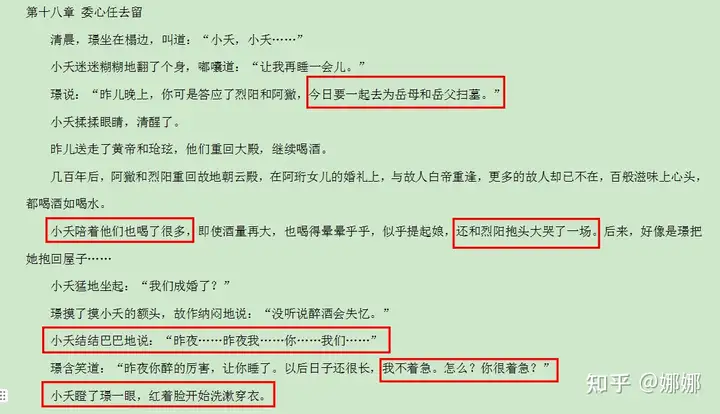
As for why Xiao Yao would accept such a marriage, and whether she minded —
She absolutely accepted Tushan Jing’s body and was completely unbothered by it. In fact, she likely never even thought that deeply about it.
That’s because Xiao Yao’s view of marriage was never the same as that of a typical woman.
Everyone should already know that she grew up without the guidance of a mature female figure, and that she was a doctor specializing in treating female infertility.
(Note: Gynecology and infertility treatment are separate departments from male fertility and urology — even in most women’s and reproductive hospitals.)
As early as her time in Qingshui Town, Xiao Yao had already made vague and confused statements about marriage.
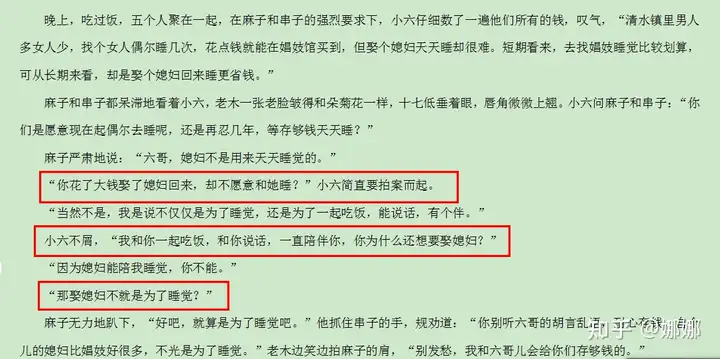
Later, in Xuan Yuan City, she also expressed to her grandfather that she didn’t have high hopes or expectations for marriage.

Because her divine consciousness had not fully returned, even after spending one final night with Xiangliu in the sea — lasting 37 years in the dream realm — she still had no clear physical sensation or understanding of sexual intimacy.
The evidence lies in Book 2, Chapter 9: “Where the Wind Returns, I Send You My Care.”
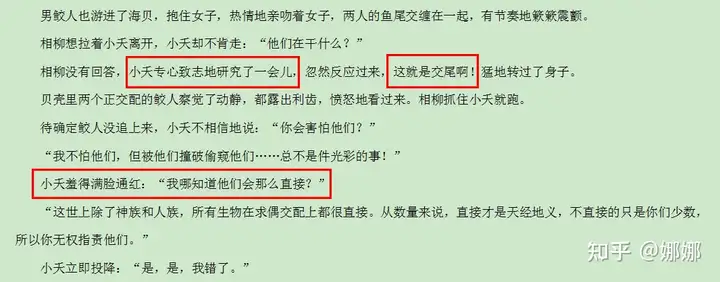
In the drama version, changes were made. However, in the original novel, Xiao Yao and Xiangliu watched animals mating together, and Xiao Yao focused intently on observing them for a while before finally understanding what was going on — and immediately blushed.
This clearly proves that Xiao Yao always had the heart of a young girl; when it came to true intimacy between a man and a woman, she had no real-life experience, expectations, or fantasies.
After carefully watching the mating scene, when Xiangliu said, “The bigger the shell, the stronger the male,” Xiao Yao immediately wondered, “How big is Xiangliu’s shell? Then how strong is Xiangliu?” — and she blushed a second time.
Shortly afterward, she felt sleepy and wanted to go to bed.
Unfortunately, this dreamlike moment — a near-consummation between Xiao Yao and Xiangliu — was completely deleted in the drama adaptation.
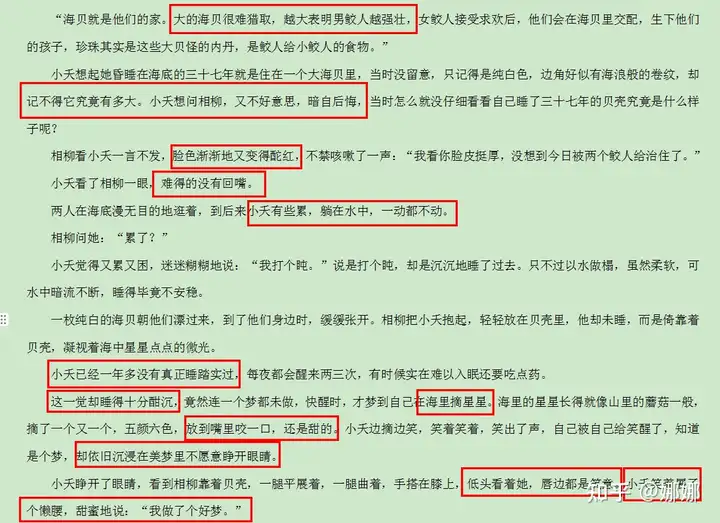
It can be said that on that night, Xiao Yao subconsciously began to develop sexual fantasies about Xiangliu.
The next morning, when she woke up, she stretched sweetly, and Xiangliu smiled as he sensed her joy.
Xiao Yao then remembered that the enormous shell was actually the love nest of the strong Xiangliu, where they had slept side by side for 37 years, and for the third time, she blushed.
She opened her eyes wide to look at Xiangliu, which activated the love Gu between them. Xiangliu then used all his lifelong strength to resist the temptation in Xiao Yao’s gaze.
“Xiao Yao and Xiangliu watching animals mate, and blushing three times in one night” — it was on this very night that Xiao Yao truly experienced a sexual awakening.
Her desire and affection for Xiangliu had been fully and vividly expressed.
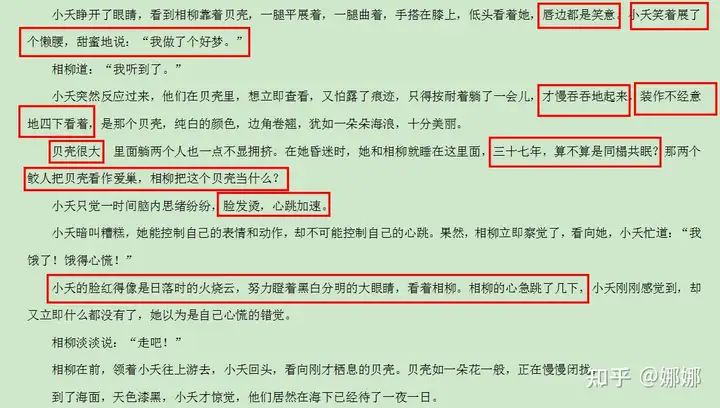
Therefore, before the wedding, Xiao Yao gifted the female mermaid to Xiangliu inside the shell house, and reached out to summon the male mermaid's crystal orb — a meaning that Xiangliu understood perfectly well.
Comparing Xiao Yao’s two major intimate scenes:
In the Osmanthus Garden, when Tushan Jing crossed the line and kissed her with his tongue, she felt panicked, scared, only thinking about how sweet it tasted, while backing away, hiding in his arms, and eventually dodging his kiss.
But in the undersea shell, she was lost in romantic fantasies, blushing, heart pounding, and even deliberately widened her eyes to gaze at Xiangliu.
The difference in her mindset is crystal clear. It cannot be deliberately ignored or maliciously twisted.
It’s not that the man's heart is made of stone — her heart had long since belonged to the world beneath the sea!
https://www.zhihu.com/question/644348808/answer/3397608561


 H19279:
H19279:
 Snowcup:
Snowcup: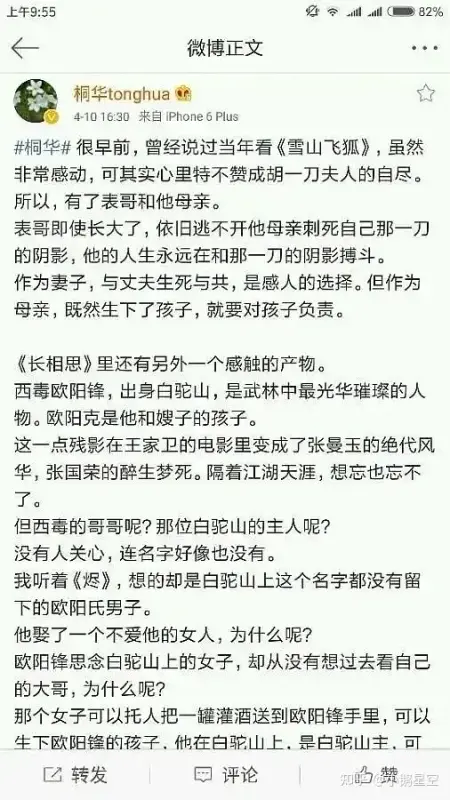 Ouyang Feng is Tushan Hou, who had an affair with his sister-in-law (meaning his younger brother's wife, Yi Ying) and fathered the child Ouyang Ke (Tushan Zhen). Tong Hua deliberately wrote that Hou had bronze-colored skin as a tribute to Leslie Cheung’s portrayal of the Western Venom Ouyang Feng.
Ouyang Feng is Tushan Hou, who had an affair with his sister-in-law (meaning his younger brother's wife, Yi Ying) and fathered the child Ouyang Ke (Tushan Zhen). Tong Hua deliberately wrote that Hou had bronze-colored skin as a tribute to Leslie Cheung’s portrayal of the Western Venom Ouyang Feng.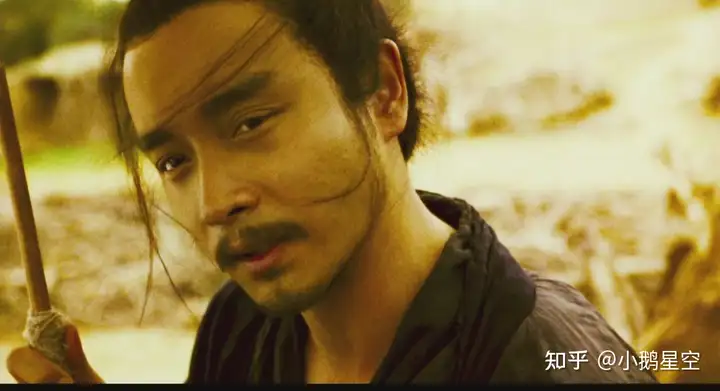 The prototype of Hou is the elder brother, Leslie Cheung.
The prototype of Hou is the elder brother, Leslie Cheung.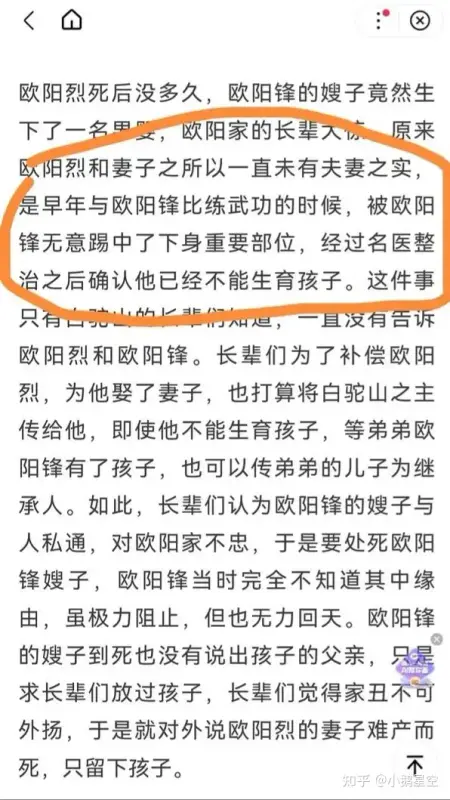 So, why do you think Tong Hua refuses to write the wedding night of Xiao Yao and Tushan Jing?
So, why do you think Tong Hua refuses to write the wedding night of Xiao Yao and Tushan Jing?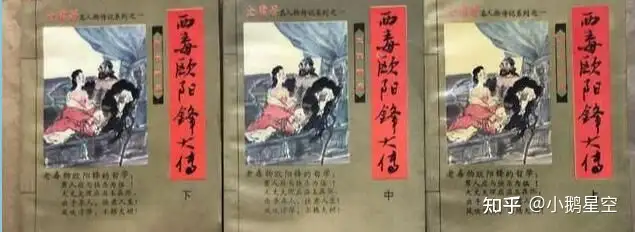 Ouyang Feng's elder brother also has a fan-made version named Ouyang Di, from The Great Biography of Western Venom Ouyang Feng by Zha Liang Jushi — one of the more influential pseudo-Jin Yong works of that era. According to the book: Ouyang Di, due to practicing a bizarre and sinister technique, lost the pleasure of sexual relations. Later, through the matchmaking of the Pale-Faced Rakshasa, he married Murong Zheng, but unfortunately was unable to fulfill a man's duties, causing his young wife to fall into sorrow and resentment...
Ouyang Feng's elder brother also has a fan-made version named Ouyang Di, from The Great Biography of Western Venom Ouyang Feng by Zha Liang Jushi — one of the more influential pseudo-Jin Yong works of that era. According to the book: Ouyang Di, due to practicing a bizarre and sinister technique, lost the pleasure of sexual relations. Later, through the matchmaking of the Pale-Faced Rakshasa, he married Murong Zheng, but unfortunately was unable to fulfill a man's duties, causing his young wife to fall into sorrow and resentment...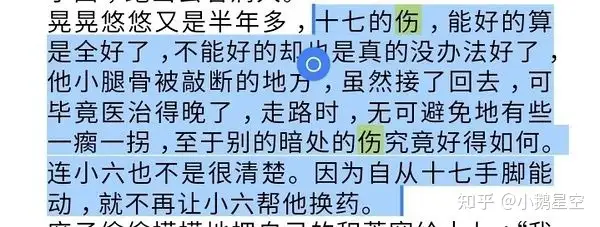 From a medical perspective, if there are tough scars on a "grilled sausage" (a euphemism for the male genitalia), it can affect stretching and movement. Traditional Chinese medicine can’t treat this kind of issue — burn injuries like this require microsurgical skin grafting, something the Great Wilderness doesn’t have in its tech tree.
From a medical perspective, if there are tough scars on a "grilled sausage" (a euphemism for the male genitalia), it can affect stretching and movement. Traditional Chinese medicine can’t treat this kind of issue — burn injuries like this require microsurgical skin grafting, something the Great Wilderness doesn’t have in its tech tree.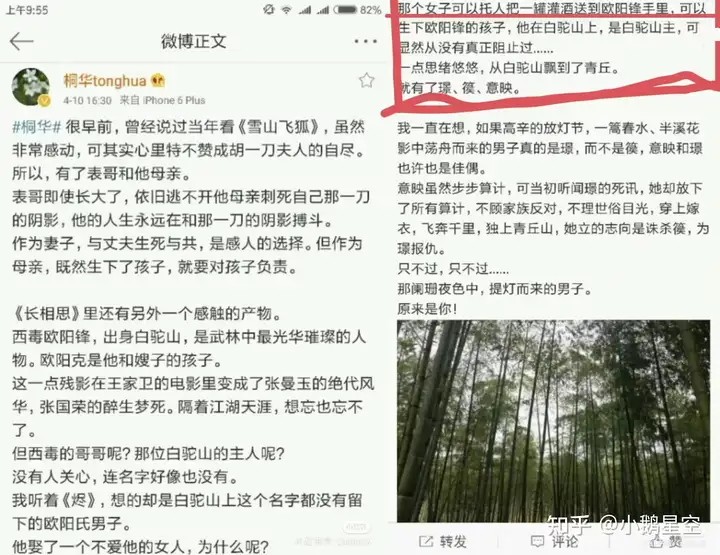 Tong Hua’s original words were: “But clearly, he never truly stopped it.”
Tong Hua’s original words were: “But clearly, he never truly stopped it.”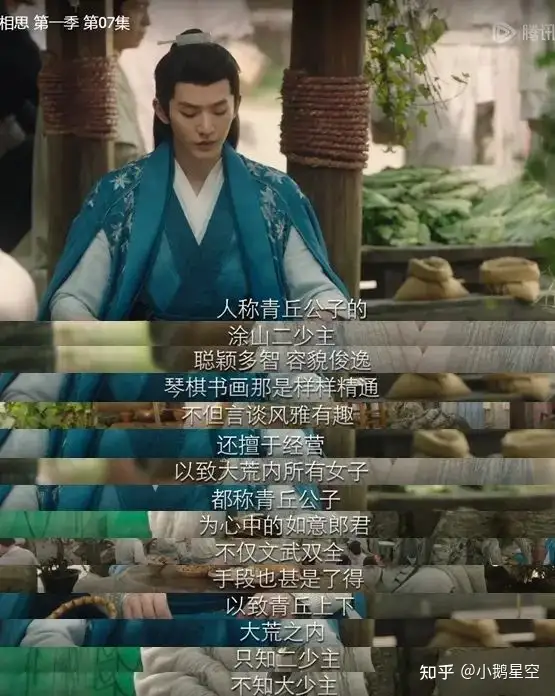
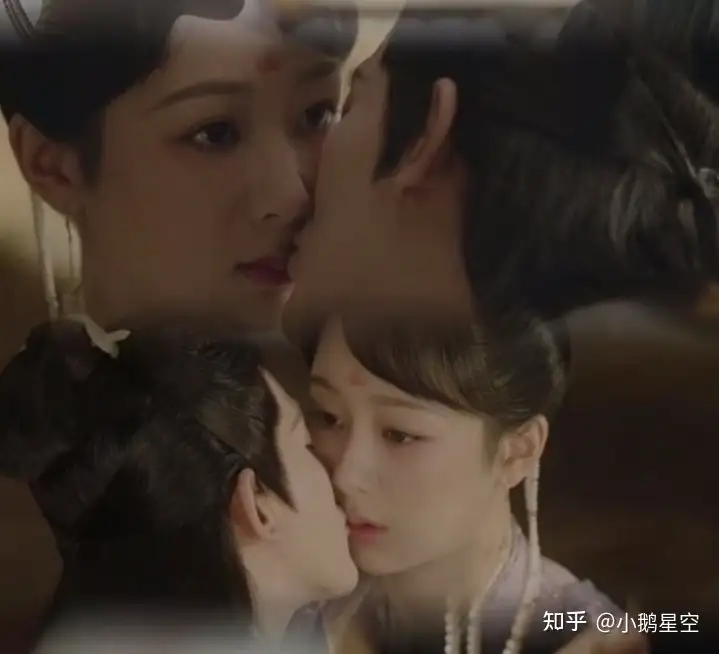 Thanks to YZ for the spot-on performance.
Thanks to YZ for the spot-on performance.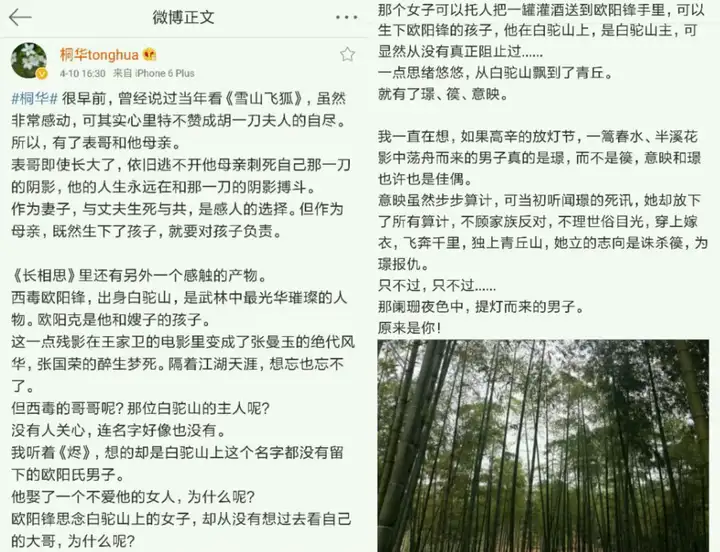
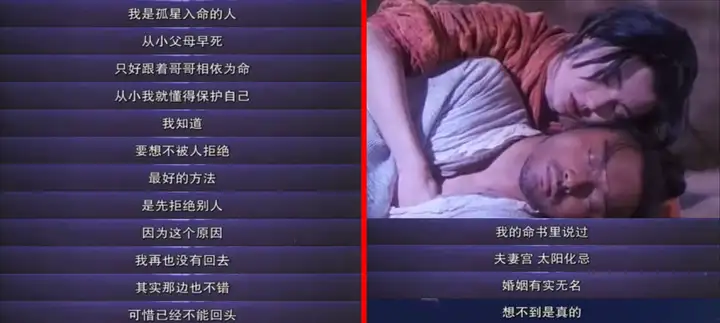
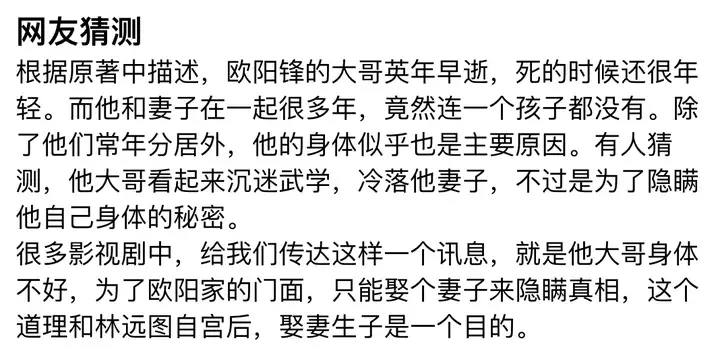

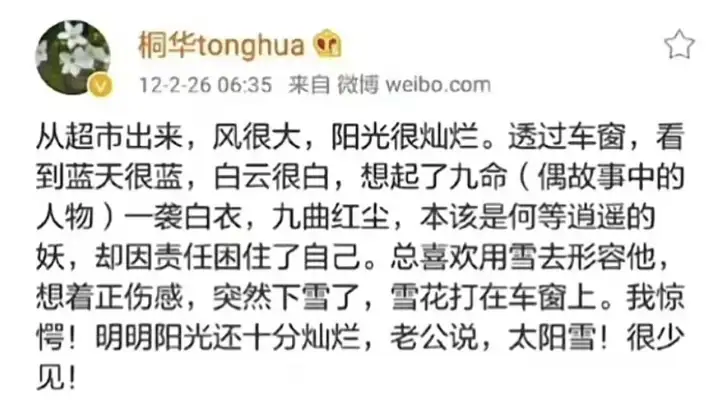
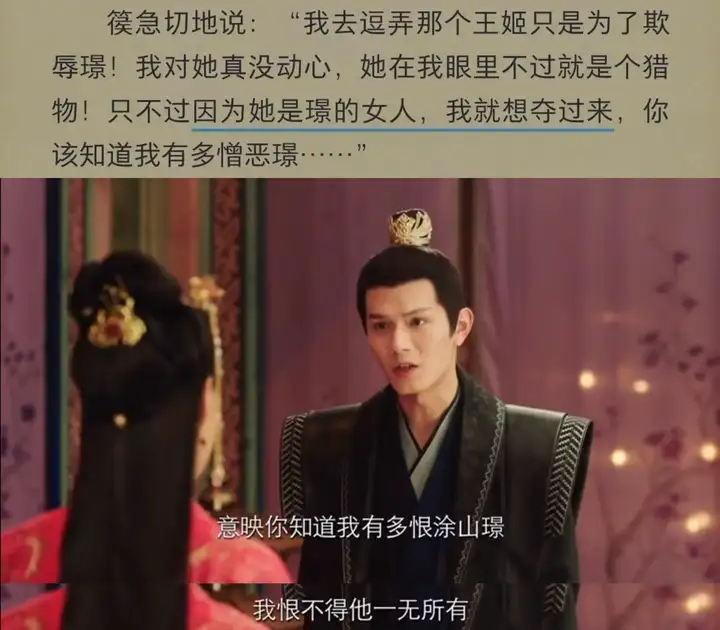
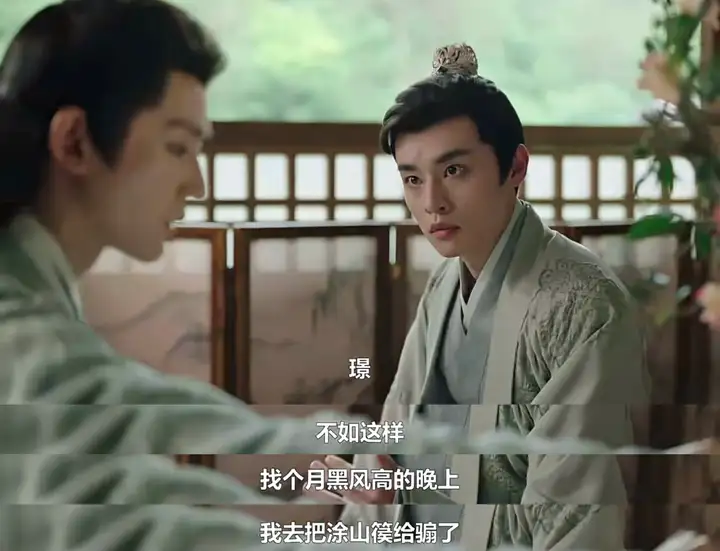
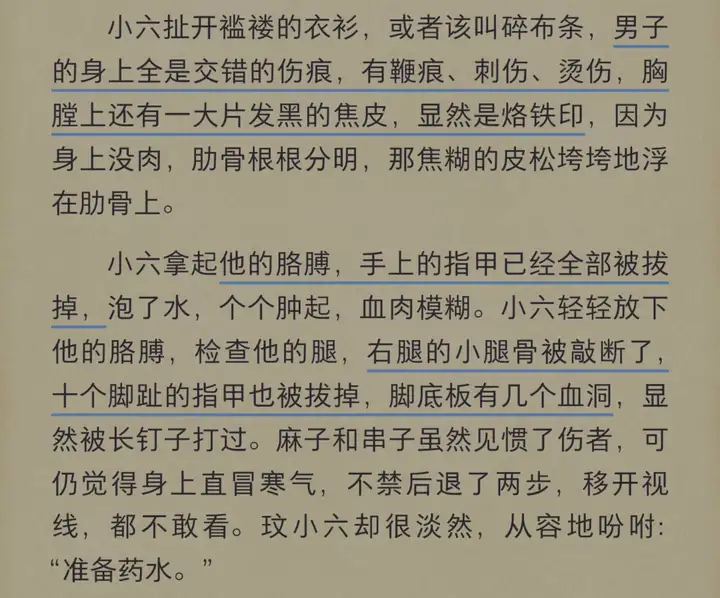
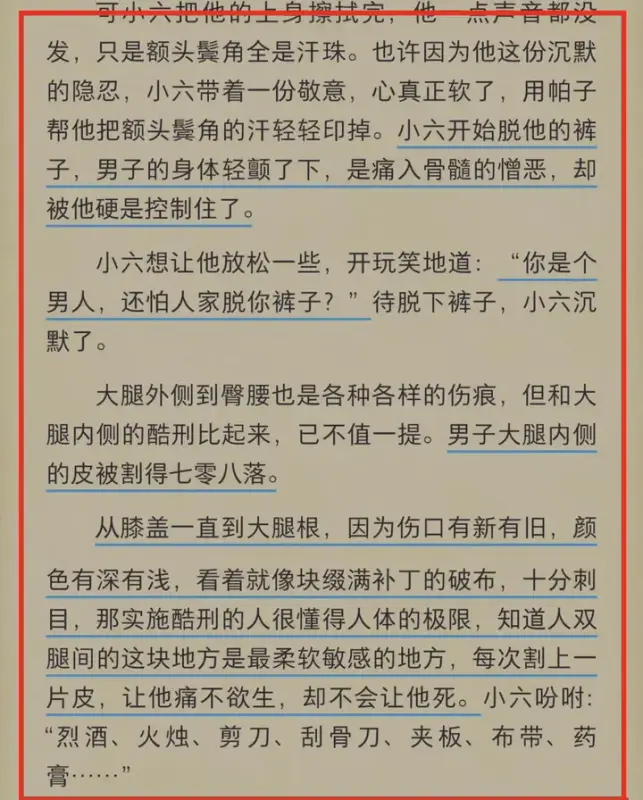


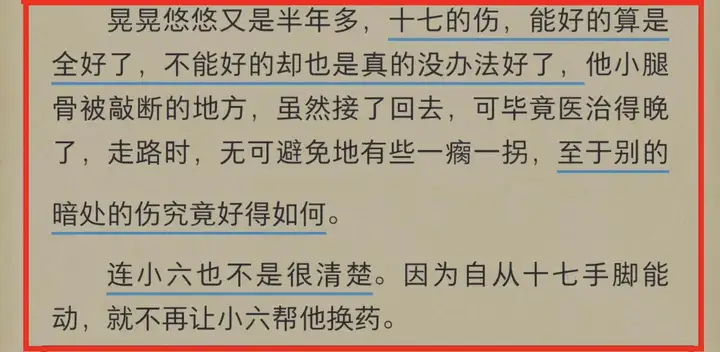
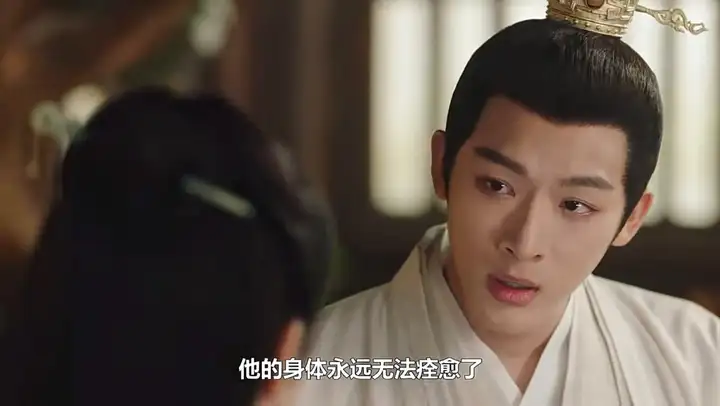
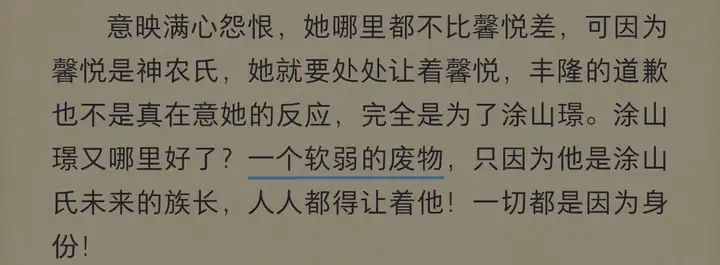
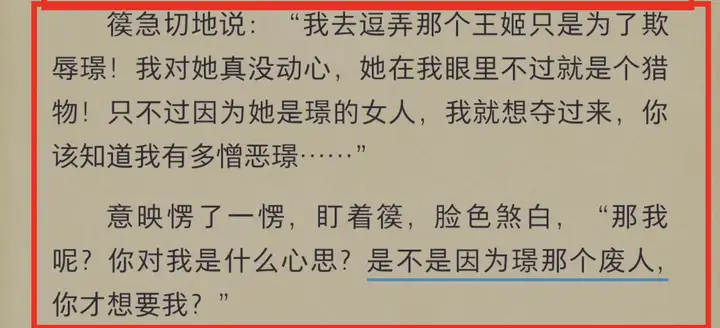
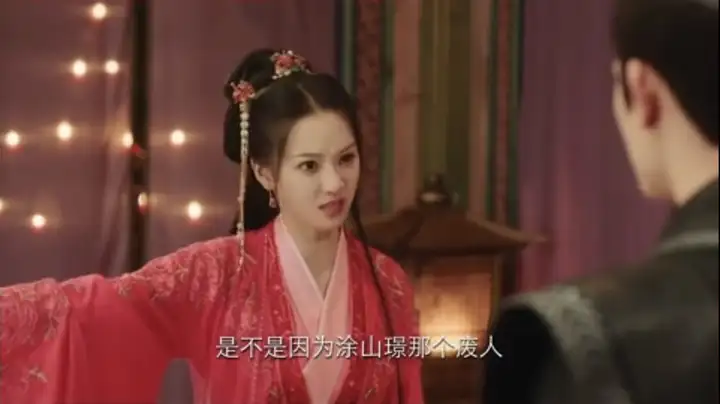
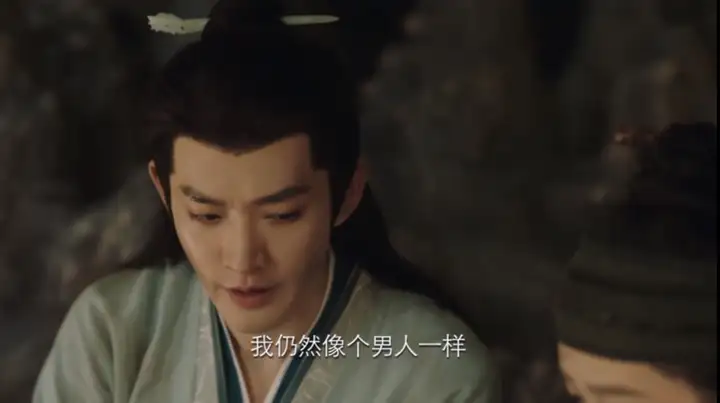
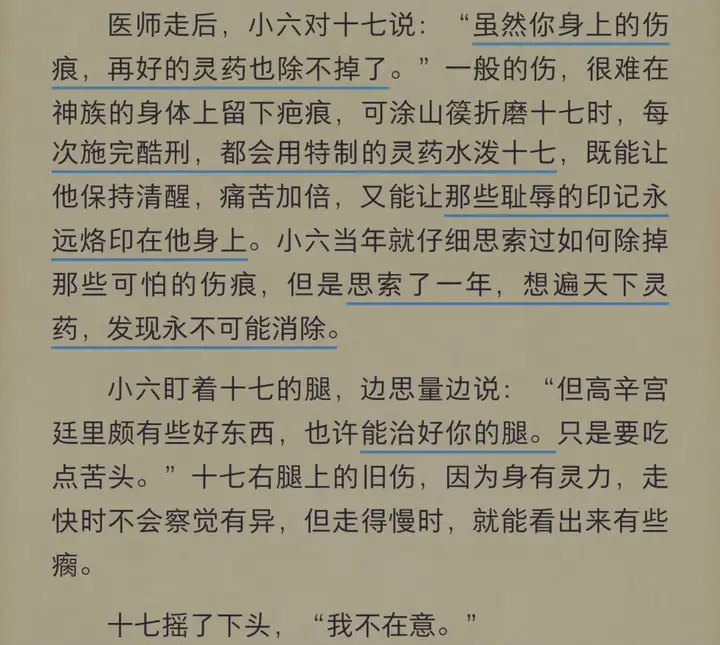

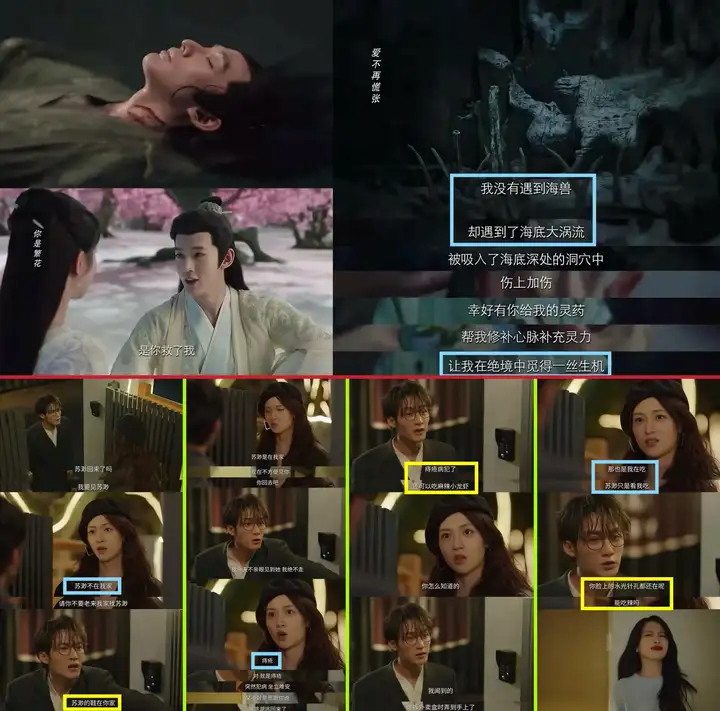
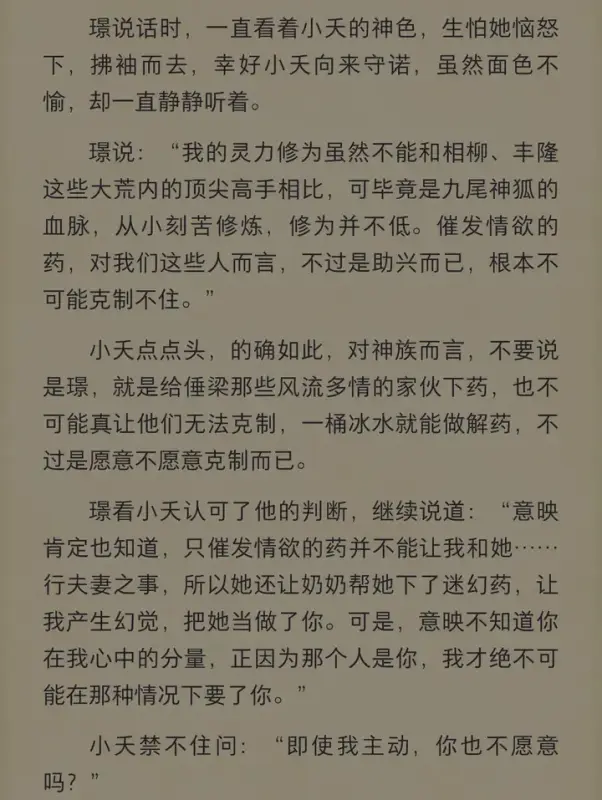
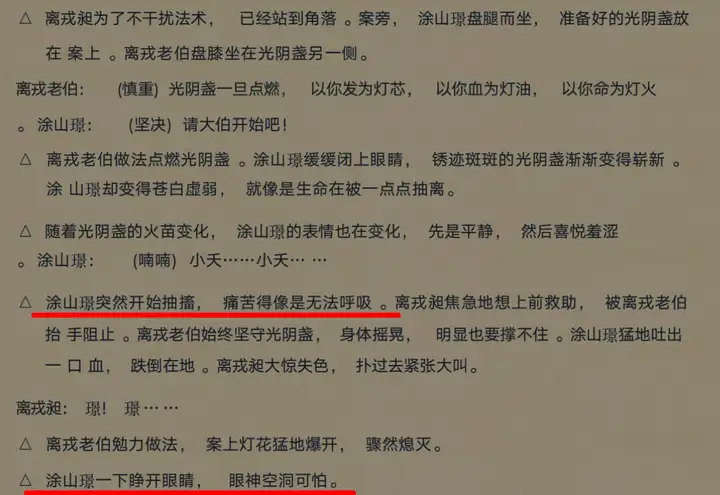

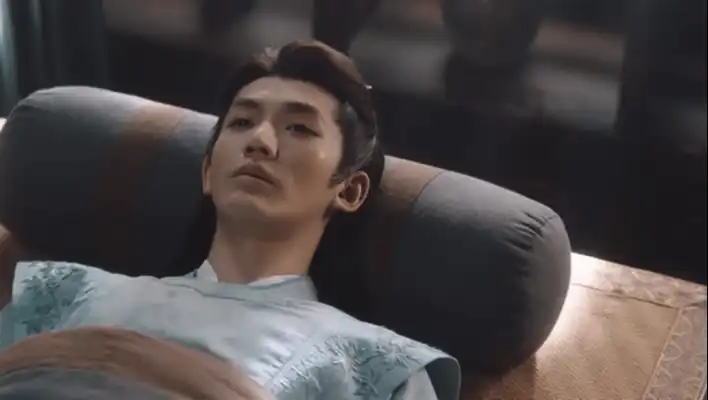
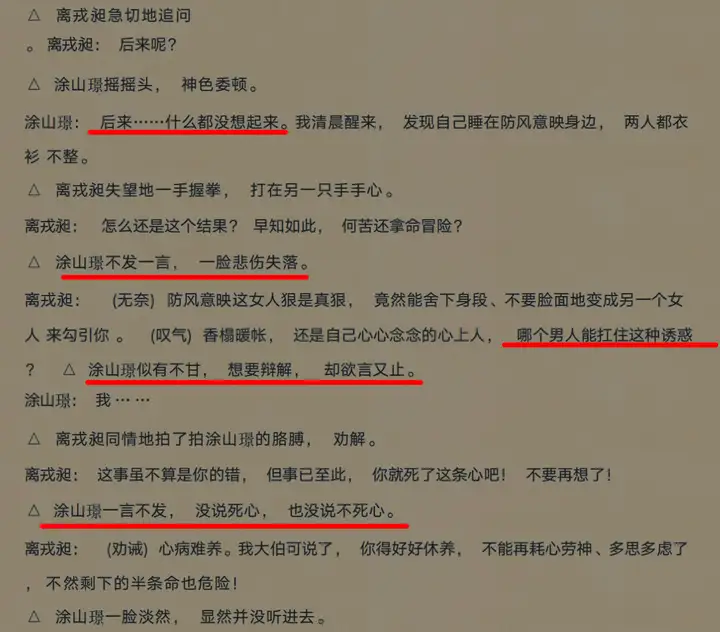
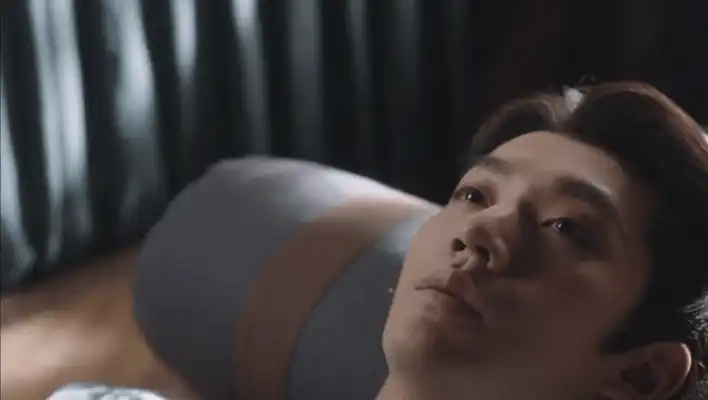
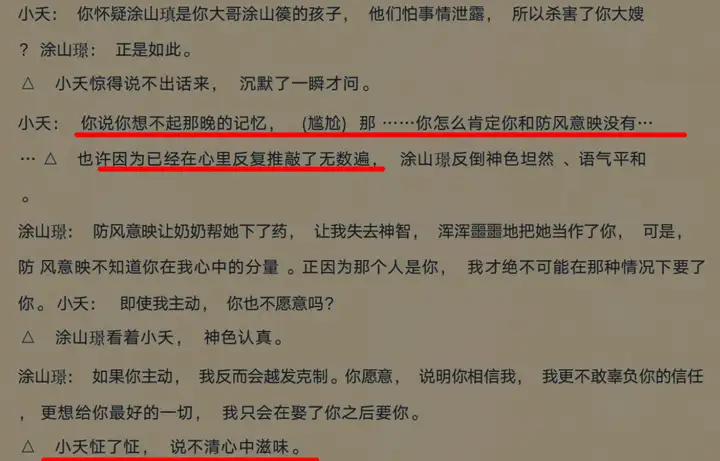
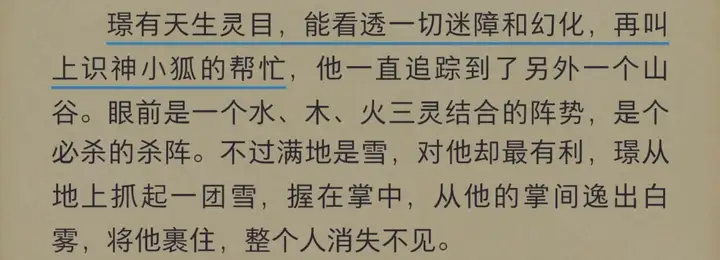
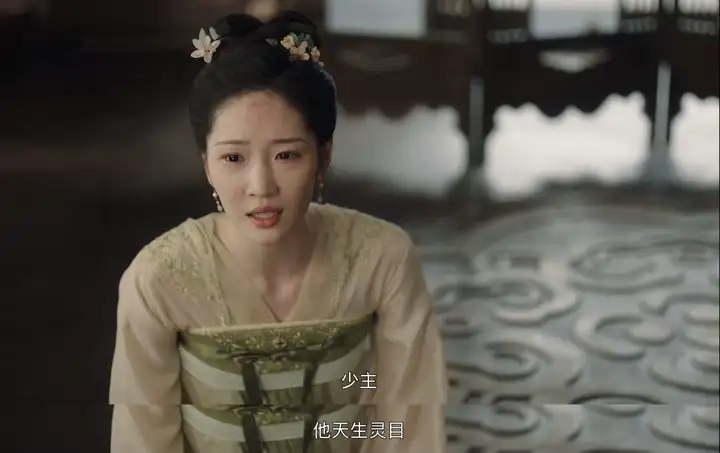
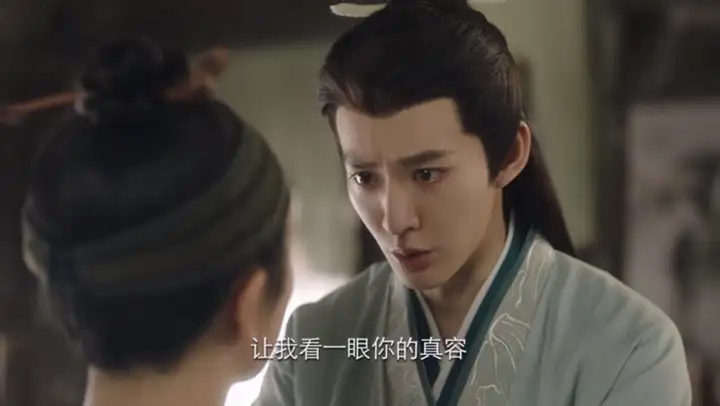
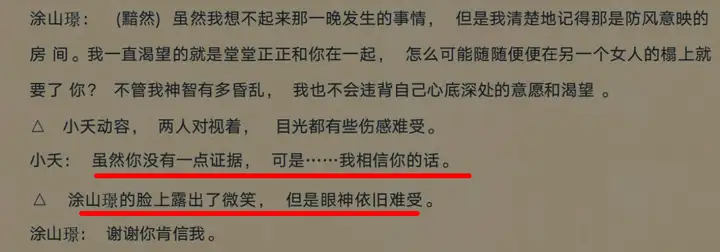
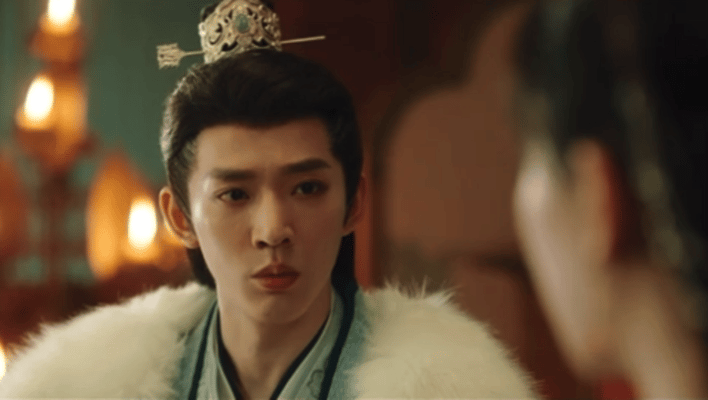

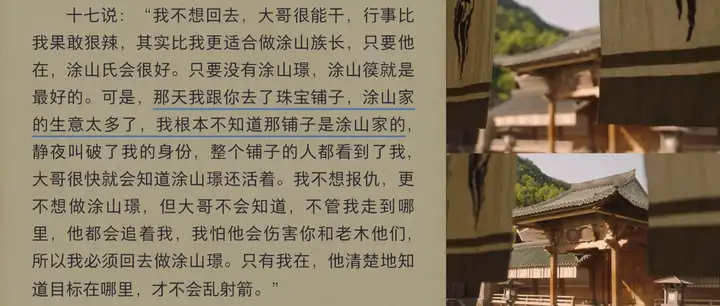
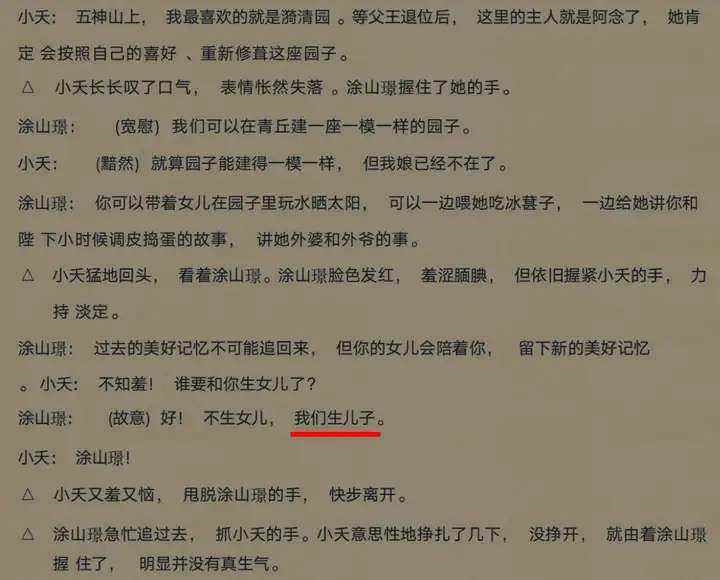
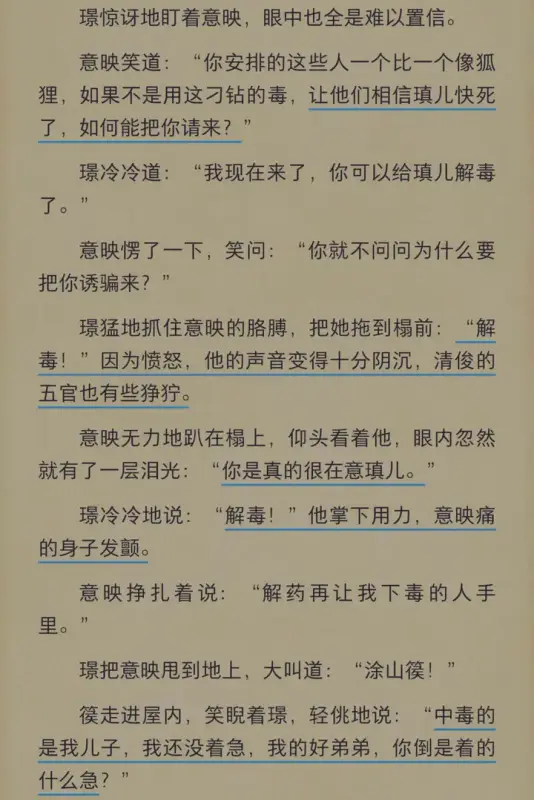 (As an additional note about the term “ideal husband,” Xiao Yao’s standards are different from others — she just wants someone to accompany her, not necessarily to marry. So she doesn’t care about that aspect at all.)
(As an additional note about the term “ideal husband,” Xiao Yao’s standards are different from others — she just wants someone to accompany her, not necessarily to marry. So she doesn’t care about that aspect at all.)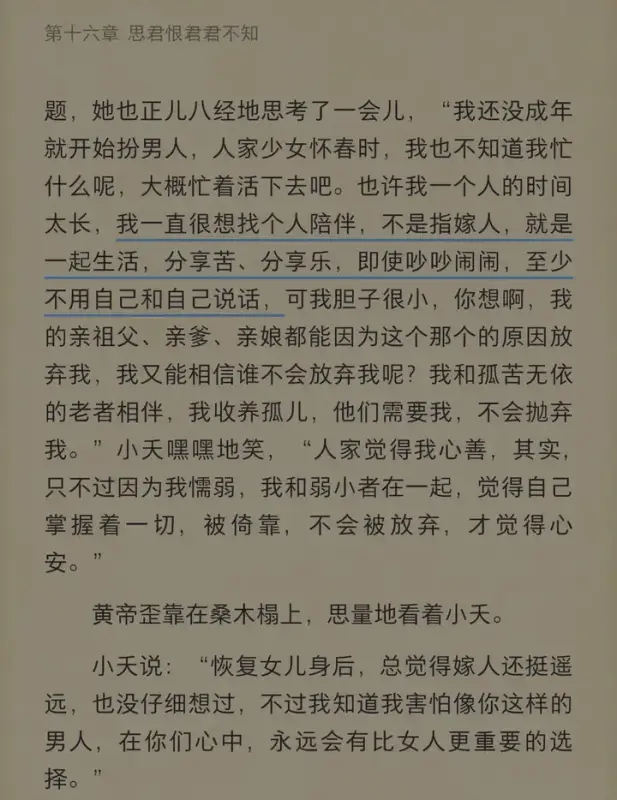 She just wanted someone to keep her company.
She just wanted someone to keep her company.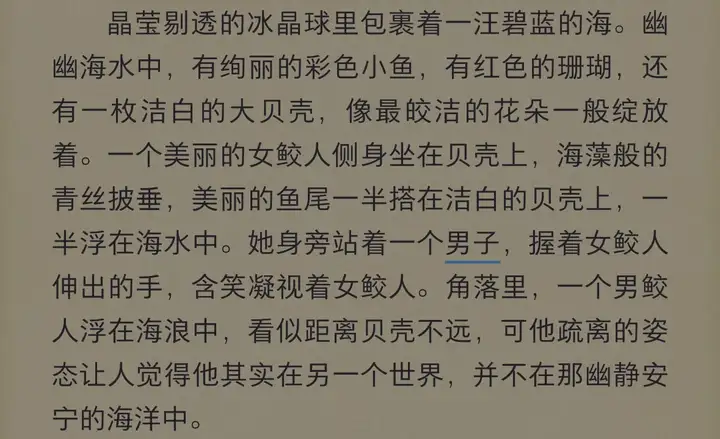 In the end, don't think about who gained or lost more between Yao and Jing — everything between them was mutual and consensual... Yao and Jing didn’t care about feelings (about who loved whom); they only cared about life itself.
In the end, don't think about who gained or lost more between Yao and Jing — everything between them was mutual and consensual... Yao and Jing didn’t care about feelings (about who loved whom); they only cared about life itself.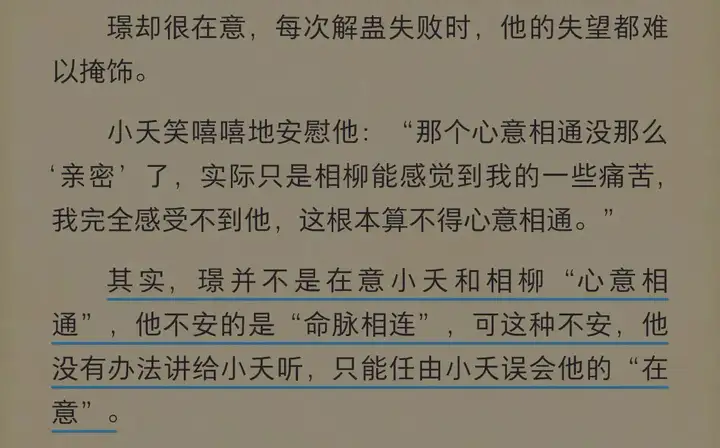
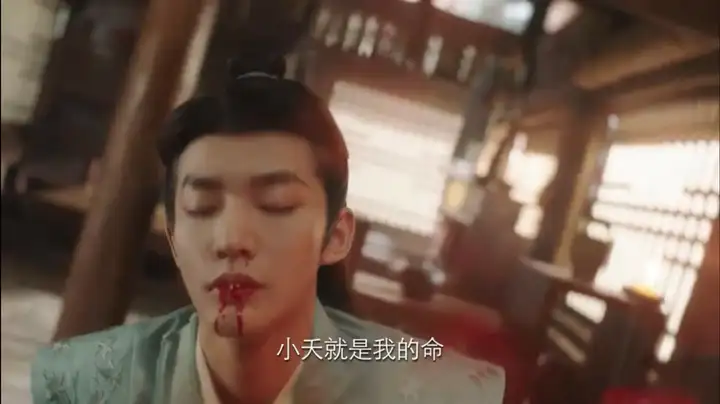
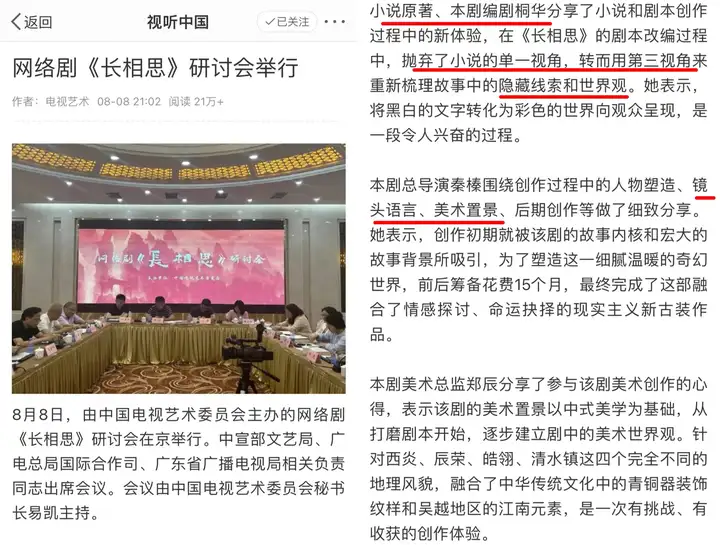
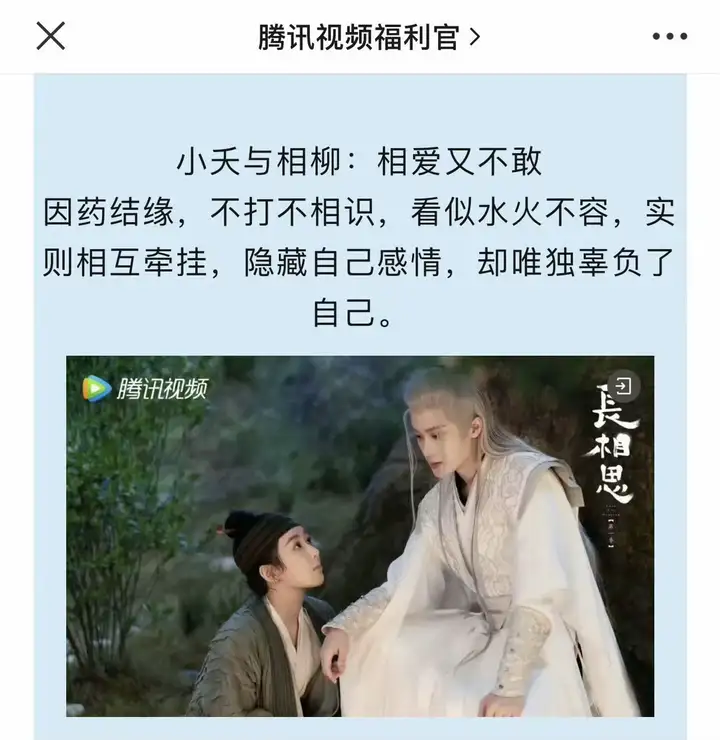
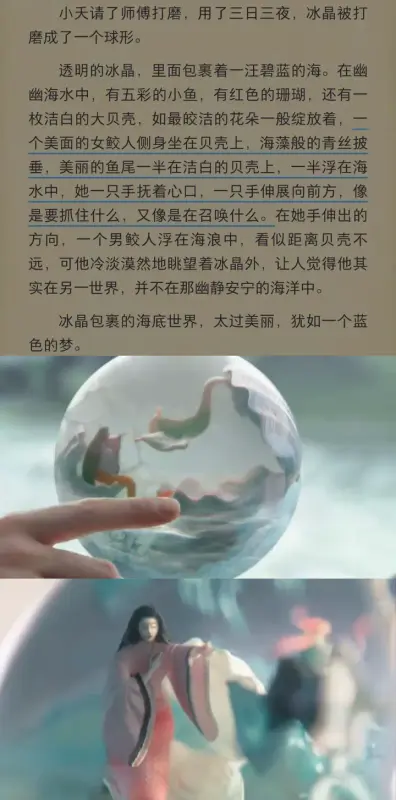 The structural change of the ice crystal ball shows the male and female mermen running toward each other — a mutual pursuit.
The structural change of the ice crystal ball shows the male and female mermen running toward each other — a mutual pursuit.






 Immediately afterward, during the first visit to the Five Gods Mountain, author Tong Hua essentially gave a death sentence to all of Tushan Jing’s scars —
Immediately afterward, during the first visit to the Five Gods Mountain, author Tong Hua essentially gave a death sentence to all of Tushan Jing’s scars —













